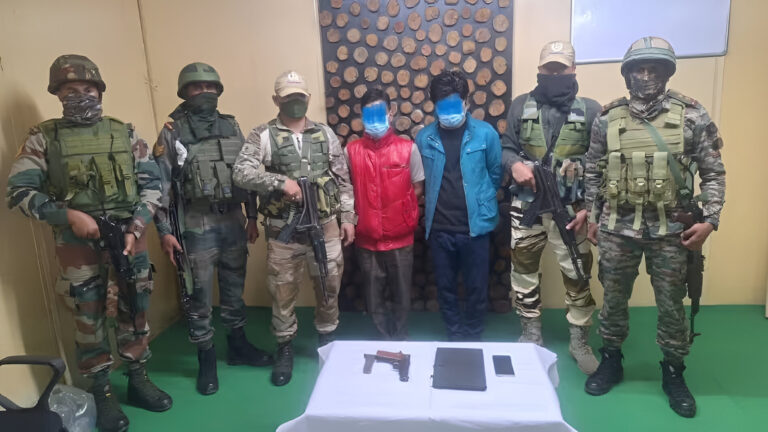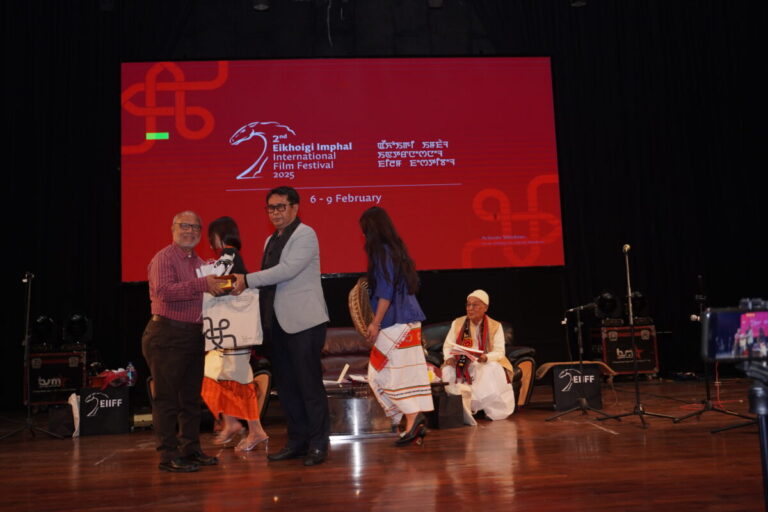Manipur’s Identity Crisis: COCOMI’s 48-Hour General Strike Over Bus Name Deletion
News Summary
On May 20, 2025, a Manipur State Transport (MST) bus carrying journalists to the Shirui Lily Festival in Ukhrul was allegedly stopped by Army personnel at the Gwaltabi checkpoint. They reportedly demanded the removal of the word “Manipur” from the bus before allowing it to proceed. In protest, the journalists returned to Imphal without covering the event. This incident sparked widespread outrage, leading the Coordinating Committee on Manipur Integrity (COCOMI) to call for a 48-hour general strike starting from midnight on May 21. COCOMI demanded a formal apology from Governor Ajay Kumar Bhalla and the resignation of key state officials, including Security Advisor Kuldiep Singh, Chief Secretary PK Singh, and DGP Rajiv Singh. The strike disrupted normal life across Manipur, highlighting deep-seated concerns over the state’s identity and autonomy.
In-Depth Analysis: The 48-Hour Strike and Its Implications
1. The Incident That Sparked the Outrage
The MST bus incident wasn’t just about a name on a vehicle; it symbolized a perceived erosion of Manipur’s identity. The demand to remove “Manipur” from the bus by Army personnel was seen by many as an affront to the state’s dignity. The journalists’ decision to return without covering the festival underscored the seriousness of the situation.
2. COCOMI’s Role and Demands
COCOMI, a coalition of Meitei civil society organizations, has been at the forefront of preserving Manipur’s territorial integrity. Their immediate response to the incident included:
- Calling for a 48-hour general strike to protest the perceived insult.
- Demanding a formal apology from the Governor.
- Seeking the resignation of top state officials for failing to protect the state’s identity.
COCOMI’s actions reflect a broader concern about the central government’s approach to Manipur’s autonomy and cultural heritage.
3. Historical Context: Manipur’s Struggle for Identity
Manipur’s history is marked by its unique cultural and political identity. As a princely state, it merged with India in 1949, but the integration has been fraught with tensions. Movements like COCOMI have emerged to safeguard the state’s territorial integrity, especially in light of peace talks with Naga groups and the Suspension of Operations (SoO) agreements with Kuki militants.
Government’s Response
In response to the incident and subsequent protests, the Manipur government formed a two-member committee to investigate the circumstances surrounding the bus incident. The committee, comprising Home Commissioner N Ashok Kumar and IT Secretary Th Kirankumar Singh, was tasked with submitting a report within 15 days. However, many, including COCOMI, view this as an inadequate response to a deeper, systemic issue.
The Role of Civil Society and Media
The All Manipur Working Journalists’ Union (AMWJU) declared a “pen down” protest, highlighting the media’s role in advocating for the state’s identity. Civil society organizations, through peaceful protests and strikes, have been instrumental in voicing the concerns of the people, emphasizing the importance of preserving Manipur’s cultural and political heritage.
FAQs
Q1: What led to the 48-hour general strike in Manipur?
The strike was called by COCOMI in response to an incident where Army personnel allegedly demanded the removal of the word “Manipur” from a state transport bus, which was seen as an affront to the state’s identity.
Q2: Who is COCOMI?
COCOMI (Coordinating Committee on Manipur Integrity) is a coalition of Meitei civil society organizations dedicated to preserving Manipur’s territorial integrity and cultural identity.
Q3: What were the immediate effects of the strike?
The strike disrupted daily life across Manipur, affecting markets, schools, and transportation services. It also brought national attention to the state’s ongoing struggles with identity and autonomy.
Q4: How did the government respond to the incident?
The Manipur government formed a two-member committee to investigate the incident and submit a report within 15 days.
Q5: What are the broader implications of this incident?
The incident underscores the ongoing tensions between Manipur’s desire to preserve its identity and the central government’s policies, highlighting the need for open dialogue and mutual respect.




